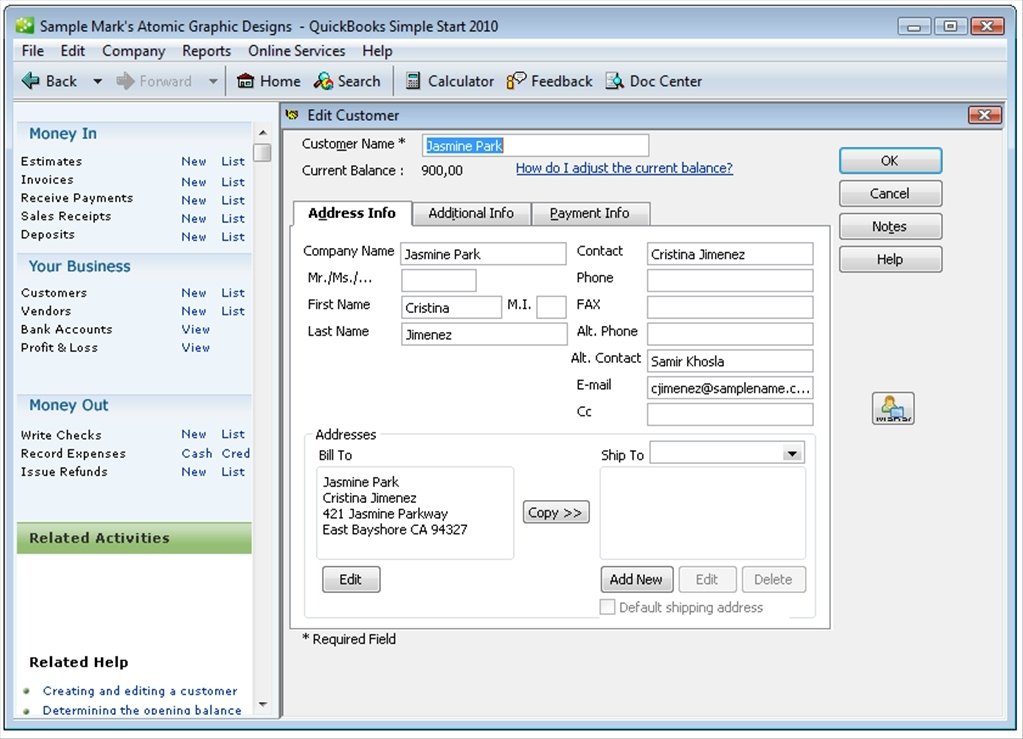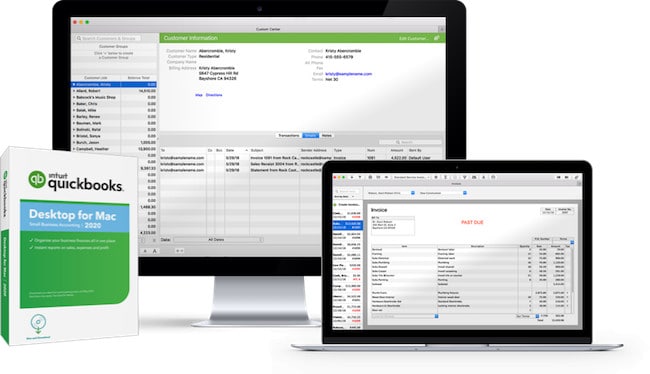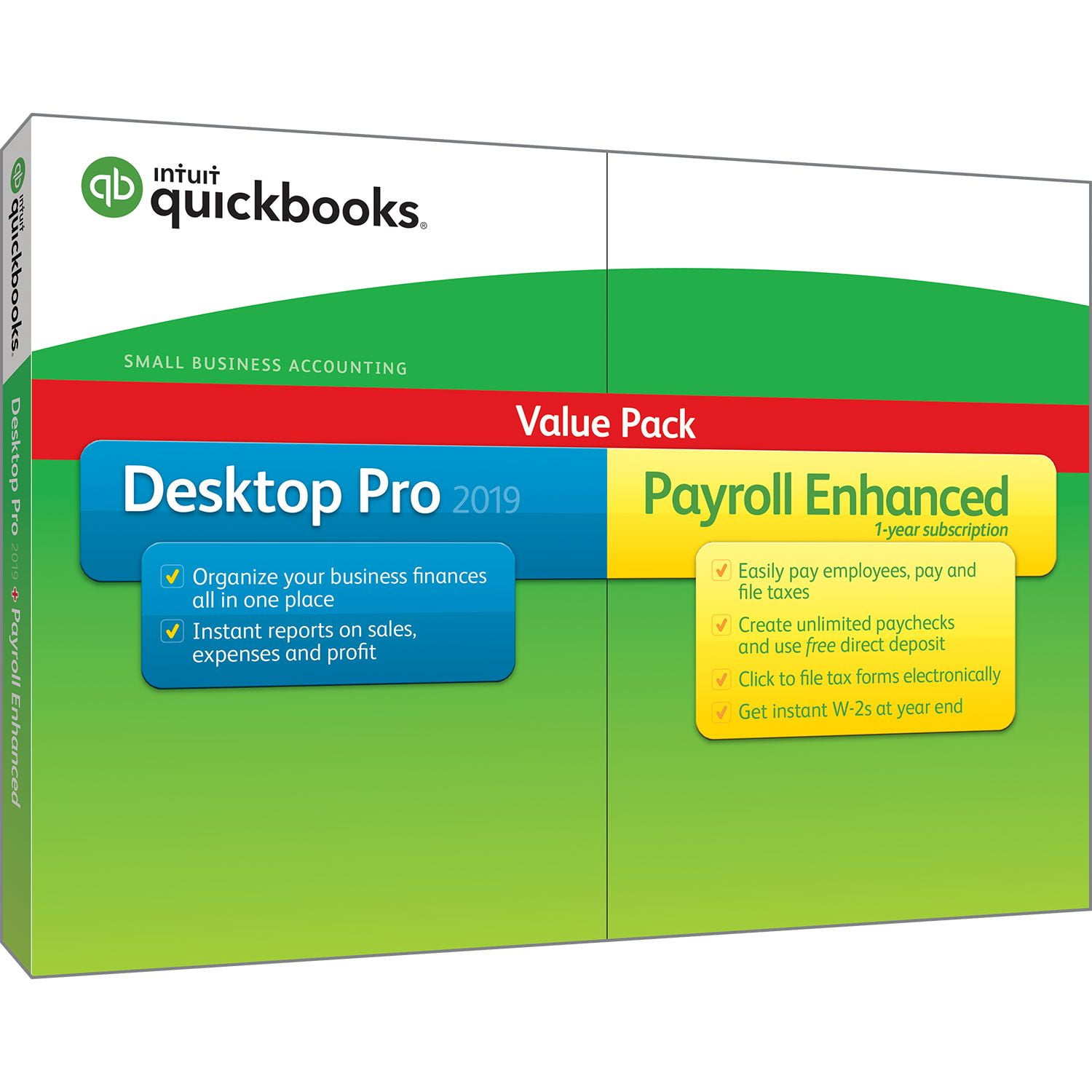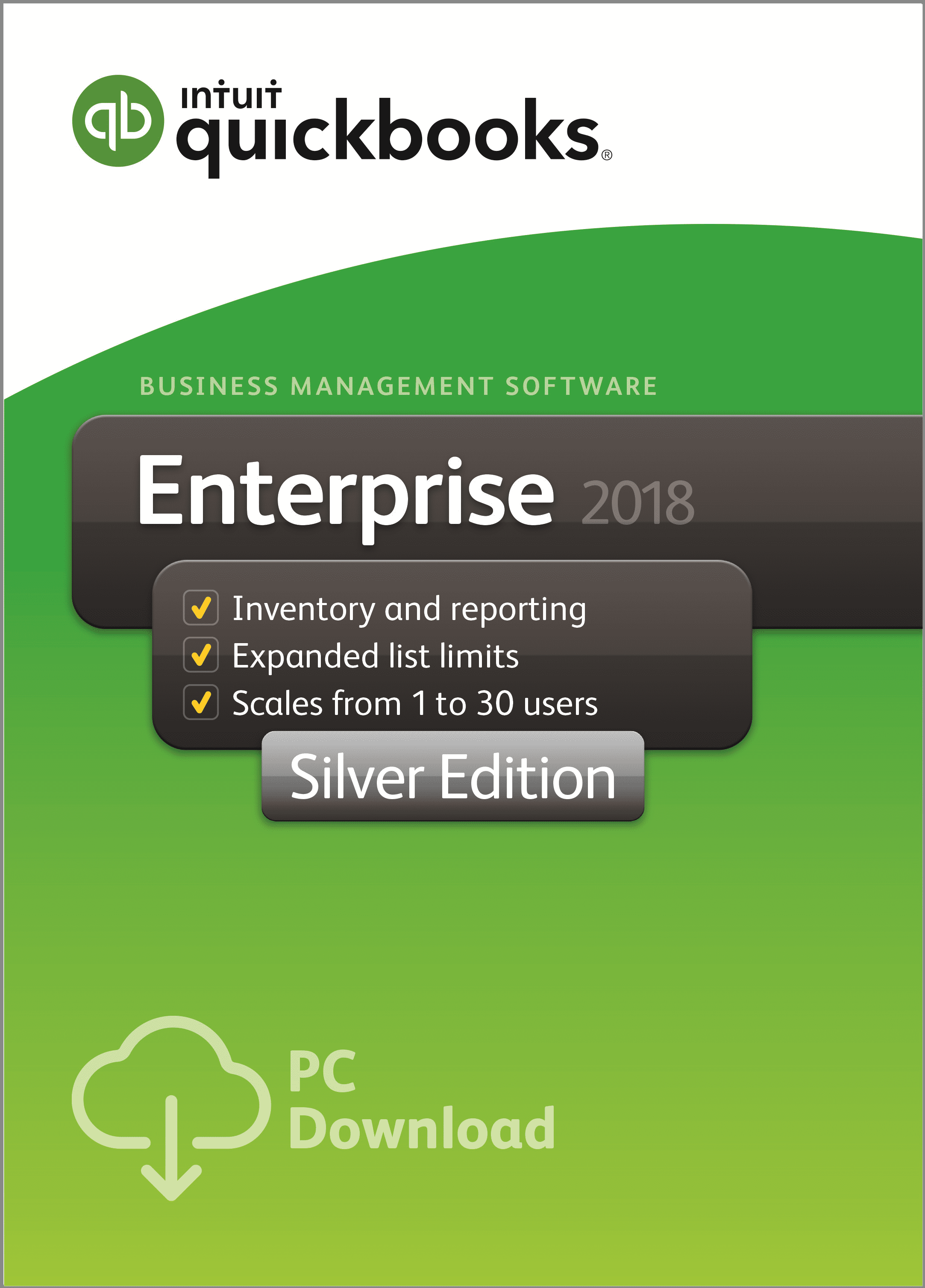QuickBooks is the most popular accounting application for accountants and SMEs alike. It doesn’t matter whether you run a small shop or freelance online or are simply an accountant filing clients’ taxes, QuickBooks has you covered. With a huge array of features, there is no reason to consider another accounting software; however, what if you wanted to take QuickBooks’ functionality to the next level? What if you wanted to automate your workflows through QuickBooks’ integration with Office 365? Can it be done? In this article, we try to answer that question as best as we can: can QuickBooks be integrated with Office 365? Let us find out.
Use your QuickBooks Time web address to sign in to your QuickBooks Time account (for example, yourcompany.tsheets.com). Jan 04, 2021 QuickBooks Desktop for Mac 2019 with the release version of R9 and later is compatible with Big Sur. To ensure your QuickBooks is running smoothly, you can follow the steps below to update the program. From the QuickBooks drop-down, select Check for QuickBooks Updates. If a newer version is available, select Install Update.
NOTE: We advise running a virtual machine (VM) to test this integration, because that way, your data stays safe in the event of some unforeseen incident happening. Such occurrences are likely to not take place, but it pays to take measures for disaster prevention.
- QuickBooks General Help Line. Want quick, easy help? We recommend having a QuickBooks expert call you. They'll have the info you’ve already entered. So you won't have to repeat it. If you prefer to call us directly, we'll ask you a series of questions to confirm your personal info and the reason for your call. Here's our toll free number: 1.
- QuickBooks Blog. United States United Kingdom Canada (English) Australia Singapore South Africa. We are experiencing higher than normal wait times for some support teams. You can also get help by visiting the QB Community for support. Welcome to QuickBooks Support.
Why Integrate QuickBooks with Office 365?
There are multiple reasons for you to consider this integration. Firstly, the functionalities of QuickBooks and various Microsoft Office 365 applications such as Word and Excel perfectly complement each other. You can use QuickBooks to crunch the numbers and Word to create a report out of them, or you can perhaps run some analysis on Microsoft Excel and then export the data to QuickBooks for accounting purposes; the possibilities are many.
So, can your QuickBooks be integrated with Office 365?
The short answer is YES.
Coming to the long answer, QuickBooks can integrate with your office productivity suite, but not directly. Now, Microsoft Office 365 contains several productivity tools such as Word, PowerPoint, Excel, and that will depend on the Office 365 plan that you choose after Hybrid Migration Office 365. QuickBooks may not work or integrate equally well with all of them. However, for the purpose of daily use, we believe you would mostly require QuickBooks to work with two apps inside the Office 365 suite namely, Word and Excel.
To start off with, if you are looking to integrate QuickBooks with Office 365 Excel, then you can do that without hassle. This allows you to export data between the QuickBooks and the Office 365 Excel application as needed.
Plus, the integration is in-app, meaning that when you open Office 365 Microsoft Excel, you can access your QuickBooks data directly from inside the application through the QuickBooks tab present in the Excel menu ribbon.
Moving on to Office 365 Word, QuickBooks can be integrated into this application as well. For instance, when you want to export some QuickBooks accounting data to Word for the purpose of reporting, you can do that smoothly for the most part. However, from our experience, you may face some issues like the QuickBooks client crashing or the Word application becoming unresponsive. Intuit and Microsoft are working continually to improve their users’ experience with their app integrations, so we expect this to improve in the future.
QuickBooks Integration Compatibility

Your version of QuickBooks is also important when it comes to Office 365 integration compatibility. QuickBooks, as you know, has multiple variants such as QuickBooks Online, QuickBooks Enterprise Hosting, QuickBooks Premier, and more which run on cloud based desktop as a service technology. Hence, how smoothly you can use both applications depends also on your software edition. Some versions have been reported by users to cause more problems than others, but to get to the nitty-gritty of the situation, you must try it firsthand.
So, there you have it – QuickBooks integration with Office 365. While it may not always be easy to work with both applications together, the functionalities of Office 365 when combined with QuickBooks’ accounting features can synergize with each other and help boost your work productivity.
One of the main benefits of CRM software is the ability to get every aspect of your business working in sync.
By uniting your communication and marketing tools with your sales platform, your team can conduct and track all their sales conversations from a single tool. But if you also rely on accounting software to manage incoming and outgoing payments, there are a lot of hidden benefits to integrating it with your CRM as well.
QuickBooks is an accounting software platform geared towards small and medium-sized businesses, offering millions of businesses a simple way to manage their daily sales and expenses, invoice their customers, accept payments, pay their bills, and generate reports for planning and tax filing.

Nearly every major CRM on the market offers a QuickBooks integration, but these integrations are far from equal. Some CRMs offer a one-click setup, while others require a longer, more complicated installation. Considering that many CRM users say their #1 challenge is finding a platform that integrates well with QuickBooks, it’s important to choose wisely.
Let’s take a look at why you need to get your CRM talking to your accounting software, and some of the best CRMs that integrate with QuickBooks and QuickBooks Online.
Why QuickBooks Is Your First CRM (And Why You Need the Real Thing)
When your business is just getting started, being able to access customer contact information from your accounting software might be enough. But just like spreadsheets, QuickBooks doesn’t actually do anything to help you make sales—it only helps you manage billing and accounting after the fact—so it’s important to connect your QuickBooks account with software that helps you manage your pipeline.
Think of integrating QuickBooks with your CRM as a way for every member of your team to have a birds-eye view of every client. What stage of the buying process are they at? Do you need to nurture them more? What do their past buying behaviors look like? What did you discuss during your last conversation with them?
Sure, automating your invoicing, billing, and follow-up on unpaid invoices saves you valuable time, but the real magic of uniting your QuickBooks account and CRM platform is that it provides transparency to your entire sales funnel, which boosts your chances of closing more leads and growing your business.
And since your accounting software needs to be a reliable source of truth for billing and payment information, keeping your CRM and accounting software synced will keep your customer data clean and organized for the whole team.
How a CRM Integration Helps You Find Buried Treasure
The realization of how many leads you have sitting in your pipeline probably won’t hit you until you import all your data from QuickBooks.
What does your QuickBooks customer list look like right now? Is it jam-packed with customers who you’ve spent time and effort crafting proposals or estimates for…and never heard back from? If so, ask yourself: How many of those leads has your team followed up with, to the best of their ability?
Those cold leads don’t belong in QuickBooks. They belong in the hands of your sales team.
All of a sudden, that boring accounting data is a lot more interesting.
Hint: A Lot of CRMs Are Using Zapier Right Now
Many CRM platforms offer their QuickBooks integrations through Zapier, which provides a simple way to connect multiple software platforms and set up automatic actions between them. (i.e., An invoice is automatically sent from QuickBooks as soon as a lead reaches the “won” stage in your CRM.)
This is particularly convenient because when you’re evaluating CRMs for your sales team, you don’t have to be limited to the handful of platforms that offer a native QuickBooks integration. At the end of the day, you want to pick the CRM that fits your business the best, not the CRM that fits QuickBooks the best.
Having a Zapier integration doesn’t mean the integration will be limited in terms of functionality, either. Several of the CRMs on our list can do just as much with their Zapier QuickBooks integrations as those with purpose-built integrations.
With that in mind, here are nine leading CRMs that offer useful connections with QuickBooks…
CRMs That Integrate with QuickBooks:
1. Nutshell
Nutshell is a sneaky powerful CRM and sales automation platform that’s designed to help sales teams do things quickly, and their QuickBooks Online integration is a great mix of sophisticated and simple.
If you have a customer list stored in QuickBooks Online, you can import it into Nutshell in just a few clicks with Nutshell’s direct importer.
All of your QuickBooks Online customers will be rolled over into your CRM in seconds, so you can start tracking communication histories, nurturing clients towards repeat business, and incorporating your QuickBooks contacts and data into your sales and revenue reporting.
In March 2020, Nutshell released a native QuickBooks Online integration, which allows customers to send people, companies, and leads to QuickBooks from their respective pages, as well as create invoices in QuickBooks directly from the lead page.
Nutshell also offers a Zapier integration, which allows you to trigger invoices, bills, or new records through QuickBooks Online once you’ve enabled the connection through Nutshell, and keeps customer records synced in both places.
Best for: Sales teams looking for a full-featured CRM that’s user-friendly and highly customizable, with the bonus of having easy integration with QuickBooks Online.
NO CREDIT CARD REQUIREDWant to kick the tires a bit?
No problem. To see if Nutshell is the right choice for your sales team, start a 14-day free trial today!
 LET’S GO!
LET’S GO! 2. Method
Method is one of the CRMs on our list that plays well with every QuickBooks product.
Whether or not you use QuickBooks Online, Pro, Premier, or Enterprise, your data will integrate seamlessly with Method. Because of its broad integration capabilities, it’s a good choice if you’re looking for a CRM where QuickBooks is absolutely integral to your sales process.
From creating estimates to invoicing, Method makes it simple to perform common QuickBooks tasks from within their system. Method also syncs contacts across both platforms to save you loads of time on data entry.
However, for what it offers in QuickBooks features, Method lacks in some other important aspects of a sturdy CRM, like pipeline automation, customizable reporting, and built-in phone capabilities.
Best for: Companies whose #1 priority in a CRM is how well it plays with QuickBooks.
3. Insightly
Insightly prides itself on its QuickBooks integration.
Like Nutshell, Insightly’s main focus is around its QuickBooks Online integration, and they’ve done it well. Insightly’s integration is simple to use, easy to install, and offers you a lot right out of the box.
You can view the payment history and status on any of your customers in a customized “QuickBooks Online” tab.
Like other CRMs, Insightly will give you a complete history of any customer you have on your books, allowing your sales team to have a better understanding of the customer they’re dealing with.
Because it plays so nicely with QuickBooks, you might find it surprising that you can’t create invoices or estimates directly from Insightly. Despite all the bells and whistles, you have to leave your CRM to bill a customer. You also can’t accept direct payments through the CRM either, so if these features are deal-breakers for you, you might have to look for another CRM.
Best for: Businesses that need advanced project management features in their CRM platform.
4. Zoho
Zoho’s integration with QuickBooks leans heavily on customization. It’ll take you a while to set it up, though.
Although Zoho allows you to add QuickBooks easily enough from the integration dashboard, that’s about as simple as it gets.
Once you’ve allowed access, Zoho requires you to then manually configure your import and export process for QuickBooks:
The upside to all this complexity? Once you set up QuickBooks in Zoho, the level of control you get back is great.
After the initial manual setup, you’ll then have the option to create timesheets, integration reports, and bills with just a few clicks and push them straight to QuickBooks, as well as sync your invoices and expenses back to QuickBooks automatically

Best for: Companies who need a customized, advanced QuickBooks/CRM relationship.
5. Microsoft Dynamics 365
Microsoft Dynamics CRM offers well-rounded functionality realized through applications focusing on key CRM components: sales, marketing, and customer service.
Microsoft Dynamics 365Sales allows sales teams to centralize account and contract information, gainfull control over opportunities in the sales pipeline, schedule engagementactivities, monitor sales performance, and carry out other tasks streamliningthe sales process.
Key features focused on sales activities include:
- Contact and account management
- Territory and quota management
- Quote and order management
- Opportunity and pipeline management
- Customer contract management
- Task/activity management
- Product and price line management
- ROI analytics
To provide for theconsistency of the sales, marketing, customer service processes, and accountingworkflows, Microsoft Dynamics 365 integrates with QuickBooks via third-partyconnectors, e.g., InoLink, Zapier, etc., and custom integrations.
6. Salesforce
Salesforce once had a special integration with QuickBooks called Salesforce for QuickBooks.
The program allowed the sales CRM to plug straight into QuickBooks. But there were problems, and the software was scrapped after three years. The integration was really only set up for businesses at the lower level of Salesforce, and it turns out the program wasn’t compatible with a lot of Salesforce’s own extensions.
Quickbooks Withdrawal
Thankfully, Salesforce also plays nice with Zapier. So if you’re looking for a QuickBooks integration through Salesforce, you can still have it.
Once connected, you’ll be able to sync your QuickBooks customers to Salesforce accounts and view all of their details from the CRM interface.
You can also do loads of other stuff with the integration, like create transactions, invoices, and manage accounts.
A complete sales history will also be available to your team right from Salesforce, along with an automatic data sync between both platforms.
Best for: Large companies who are looking to work from the Salesforce Sales Cloud.
7. Copper
At the moment, the only way to connect QuickBooks to Copper is through Zapier. You’ll need a premium QuickBooks and Zapier accounts to connect the two.
Once you connect through Zapier, you’ll be able to log payments as activities. You’ll also be able to view past invoices and payment amounts on your records, straight from the Copper dashboard.
Copper’s integration with QuickBooks is fairly limited. There are only a couple of functions available through Zapier to make Copper and QuickBooks talk. But if you only need a lightweight QuickBooks integration, and you are looking at Copper because of its integration with G Suite, don’t be entirely put off.
Even its simple integration will allow your sales team to view key data for each customer on their email dashboard:
Best for: Companies who have sales teams that work primarily out of G Suite.
8. Freshsales
Freshsales is another CRM that puts its QuickBooks integration at the forefront of its sales pitch. And rightly so.
Freshsales lets you pin or connect invoices to contacts from the CRM, which can come in very handy if you are having trouble chasing payments.
The integration allows invoices and customer histories to be kept for each customer on the Freshsales interface.
But it’s the built-in phone feature that makes this integration unique. If you’ve got problems with invoices or payments, your finance team will be able to follow up with them easier—all from Freshsales.
The feature will also be a massive bonus if your sales team closes more deals over the phone. Because of its functionality, Freshsales gives your sales reps the tools to control the entire deal, from prospecting to the final invoice.
But, there is some bad news.
Although it offers a lot, you still can’t invoice a customer directly from Freshsales, or make payments.
Best for: Sales teams who close a lot of deals over the phone.
9. GreenRope
Even the smaller CRMs on our list are getting in the QuickBooks action.
Although GreenRope only has about 3,000 customers worldwide, they offer direct integration from QuickBooks into their software.
Some of the features you’ll get from the integration include importing customers as new contacts and transferring your invoices across platforms.
You can also sync your customer data over from QuickBooks and then set the system to update any data from that point, automatically.
GreenRope currently uses QuickBooks’ own Intuit Web Connector, which can be easily installed onto your desktop. You need this to be running for the syncing of invoices and contacts within the CRM, though.
Their reporting functions are relatively simple to use, if a little clunky:
Best for: Businesses who are looking for a one-stop, no-frills CRM.
Look for the Best CRM, Not the Best Integration
Having a QuickBooks integration in your CRM is important. Very important.
That’s why most CRMs on the market have stepped up to the plate and offered some way to integrate QuickBooks into their system.
But while it’s important to integrate QuickBooks with your CRM, it doesn’t have to be your main priority when choosing a CRM.
Remember: Choosing the right CRM for your business can make a massive difference to the performance of your sales team—not to mention your customer service team, your marketing team, and how all these teams work together. So ask yourself, are you looking for a CRM that fits QuickBooks, or a CRM that fits your business?

Quickbooks Without Subscription
Look at the bigger picture, and choose a CRM that will help your entire business, not just a part of it.
NO CREDIT CARD REQUIRED